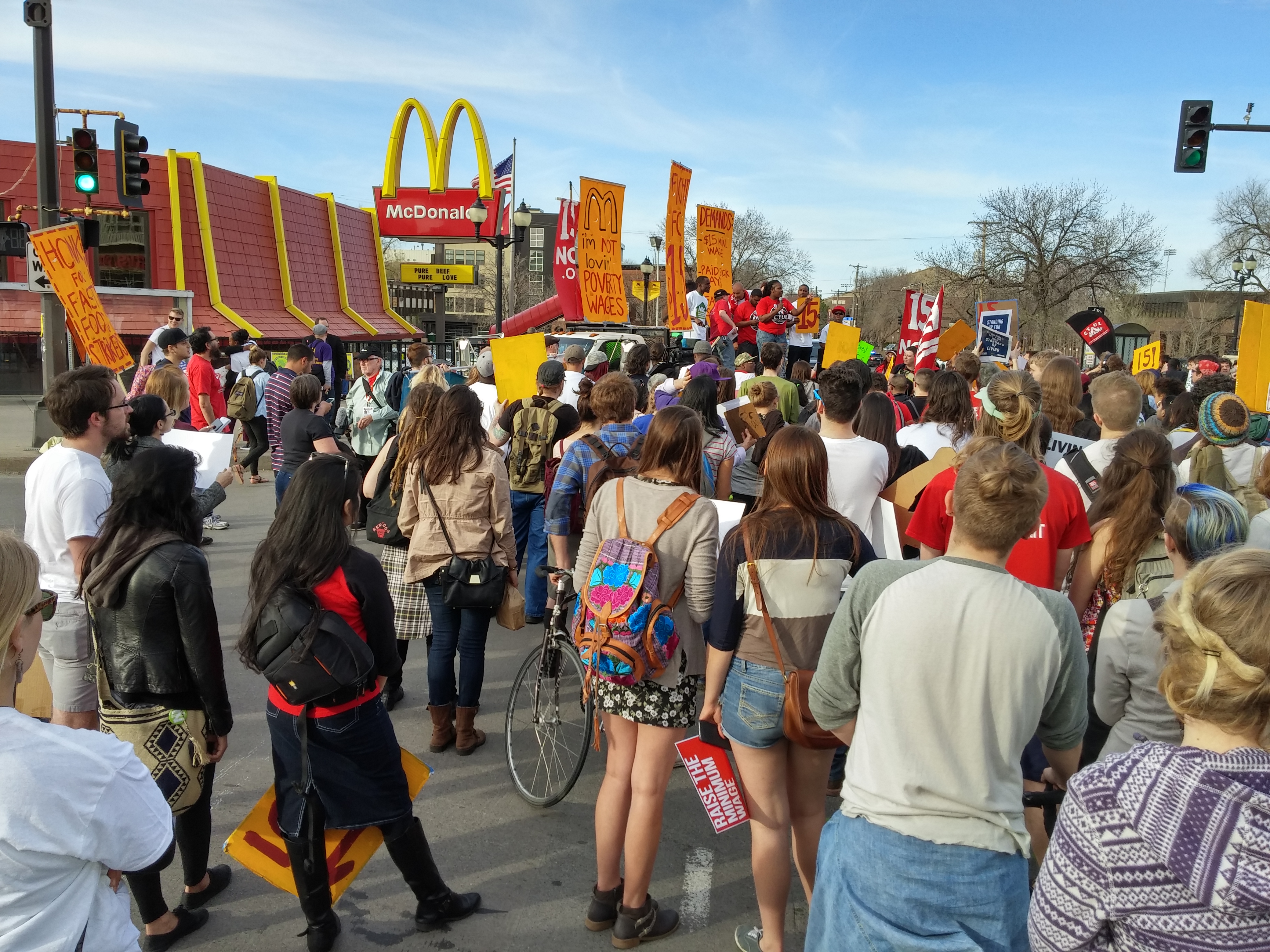Fast-Food Workers Hope These McDonald's Hearings Will Rock the Industry

By:
The fast-food industry and some members of the media are hoping broad-sweeping changes to the fast food industry will result from McDonald's labor practices hearing before judges in New York.
After receiving complaints from protesters, the National Labor Relations Board dragged McDonald’s Corp. and franchisee representatives into a Manhattan court in a move that The Washington Post said could have "deep implications for one of America's largest low-wage industries."
In question is whether McDonald's is responsible as a "joint employer" for the way its franchisees treat workers. If they are, the corporation could owe employees money for labor violation accusations.
Those watching the trial seemed to be anticipating major changes for the fast-food giant, and beyond:
However, while McDonald's workers are hoping for some extra cash in their pockets and better working conditions, Catherine Ruckelshaus, general counsel and program director of the National Employment Law Project, told ATTN: that it's more complicated than that.
According Ruckelshaus, even if McDonald's is found to be a "joint employer," it doesn't necessarily mean other chains will take on greater responsibility for employees who work at their franchise locations.
Ruckelshaus said that this case is specific to McDonald's particular relationship with its franchisees that it may not affect other companies in the food industry. "It's so specific that it may mean almost nothing for certain brands," she said. "Many companies aren't asserting as much control as McDonald's."
Ruckelhaus also called claims that a decision against McDonald's would ruin the fast-food industry "hysterical."
"The [labor] standard has been around for 30 years," she said. "It's nothing new."
Basically if McDonald’s loses this case, the specific workers that complained about labor violations could see "remedies" — which typically translates to money. However, those remedies may not translate to any other aspect of the food industry, according to Ruckelhaus.
Others are thinking franchise apocalypse.
The International Franchise Association released a statement calling the charges against McDonald's an "attack" on the industry.
“The franchising business model is responsible for 9.1 million jobs and has built hundreds of thousands of families into successful small business owners in every community in America, but this attack will undoubtedly be destructive for the industry if the ALJ were to find McDonald’s is a joint employer with its franchisees, and the NLRB were to affirm her decision. IFA will continue to contest in all appropriate [forums] any attempt to change the long established joint employer standard to ensure franchising’s continued economic growth." — International Franchise Association statement
If the IFA is right, this could affect everyday life for many Millennials.
About 60 percent of fast-food workers are 24 and younger, and not all of those young people are teenagers working part-time jobs. Half of those workers are between the ages of 20 and 24, according to the Center for Economic and Policy Research.
How did Ronald's friends end up in court?
The complaints about McDonald's started in 2012, after a large protest by McDonalds workers in New York City asking for higher wages. After those protests, many employees complained that their supervisors threatened to fire them if they didn't stop demonstrating.
Although McDonald's attorney Willis Goldsmith did not respond to a request for comment by publication, he maintained in opening statements that the corporation is not a "joint employer" and therefore not responsible for the accusations against franchise managers, according to The Washington Post.
 Flickr/Fibonacci Blue - flickr.com
Flickr/Fibonacci Blue - flickr.com
The long road ahead.
The first witnesses testified March 10 in New York City, but this will most likely be a long court process with multiple locations across the country. After New York, the trial will hear cases from Chicago, Indianapolis, Los Angeles, and San Francisco.
If McDonald's loses, and the ruling is found to be applicable to other companies, Ruckelshaus said it might still have implications for fast-food chains similar to McDonald's.
"It really just means other franchisors, if they have similar set ups to McDonald's, they might want to start thinking about how they make sure their labor conditions in their franchisees are above board," she said.
